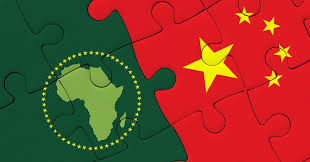
Our Correspondent | Africa Guardian
While seven in ten Africans express concerns about the influence of foreign powers, China and the U.S. stand out as the most impactful. Interestingly, much of this influence is viewed favorably.
In countries like Rwanda and Chad, nearly all youth—96% in both cases—hold positive views of China’s influence, followed closely by Kenya at 95% and Nigeria at 93%.
The 2024 African Youth Survey, commissioned by the Johannesburg-based Ichikowitz Family Foundation, reveals these insights. The survey gathered opinions from 5,604 young people aged 18 to 24 across 16 African countries, including Botswana, Cameroon, Chad, Ivory Coast, Ethiopia, Ghana, Kenya, Malawi, Nigeria, and South Africa.
Despite China being seen as the dominant global player in African nations, its perceived influence is gradually declining. In 2020, 83% of young people believed China had a significant impact on their countries. However, that number dropped to 79% in 2022 and further to 76% in 2024.
This decline reflects broader trends, such as China’s slowing economic growth, the aftereffects of the COVID-19 pandemic, ongoing US-China trade tensions, shifts in Chinese investment patterns, and rising concerns about debt. These factors are reshaping the economic and political ties between China and African nations.
Despite the decrease in perceived influence, positive sentiments among African youth towards China’s impact have grown—from 78% in 2022 to 82% in 2024.
Affordability of Chinese products emerges as a significant driver of these positive perceptions, with 41% of respondents citing it as a key factor. China’s ability to produce a wide range of goods at lower costs has made essential items more accessible in developing countries. From electronics to clothing and household goods, affordable Chinese products have significantly influenced consumer markets, allowing people to stretch their purchasing power.
China’s investments in infrastructure, highlighted by 40% of respondents, are another major contributor to its positive image. The Belt and Road Initiative (BRI), often referred to as the New Silk Road, is one of the most ambitious infrastructure projects globally, with a profound impact across Africa. Through this initiative, China has facilitated the construction of power plants, railways, highways, ports, and telecommunications infrastructure across the continent.
While these massive infrastructure investments hold the potential to spark a new era of trade and economic growth for African nations, some skeptics worry about the possibility of a debt trap for borrowing governments.
China’s provision of loans and economic support also plays a crucial role in shaping favorable views, with 35% of respondents recognizing this contribution. For many developing nations, China’s financial assistance has been a vital source of funding for large-scale projects that would otherwise be out of reach. However, growing concerns about the long-term costs—such as rising debt and potential threats to economic sovereignty—are also present.
Employment opportunities created by Chinese companies are acknowledged by 30% of respondents as another benefit. Chinese firms operating in Africa often hire local workers for construction, manufacturing, and retail projects, helping to reduce unemployment rates and develop skills among the local workforce. However, concerns about labor practices and working conditions persist.
Finally, 22% of respondents view China positively for providing a market for their country’s exports. Over the past two decades, China has emerged as sub-Saharan Africa’s largest bilateral trading partner, with approximately 20% of the region’s exports now heading to China and about 16% of its imports coming from China, according to the International Monetary Fund (IMF). In 2023, this relationship reached a record total trade volume of $282 billion.
___
